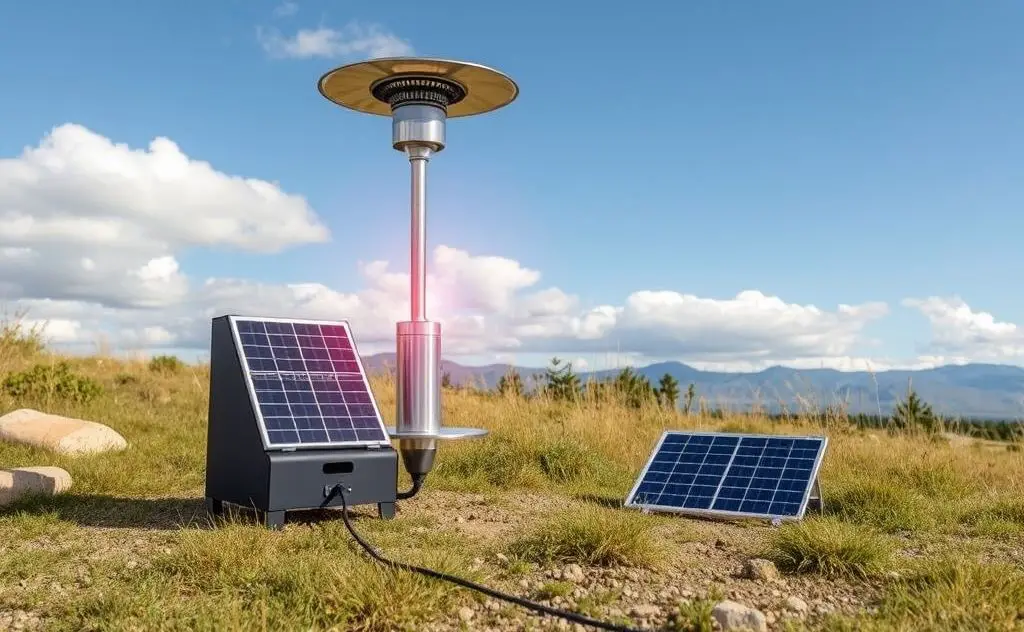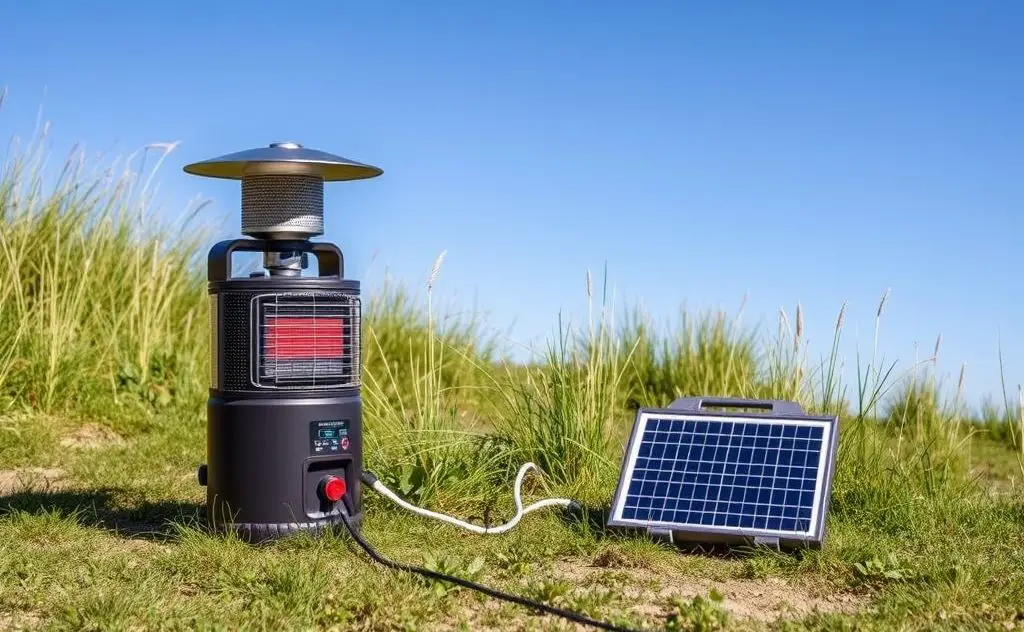Yes, you can use a portable heater with solar energy by connecting it to a solar power system that provides adequate wattage for the heater’s requirements.
Yes, you can run a portable heater using solar energy, but it requires careful planning. Solar generators with sufficient battery capacity and high-wattage output can effectively power space heaters. This guide explains the key requirements, setup considerations, and best practices for solar-powered heating.

How Solar-Powered Portable Heaters Work
Solar generators convert sunlight into electricity through photovoltaic panels, storing energy in batteries for later use. When paired with a portable heater, this system provides off-grid heating without traditional power sources.
Key Components Needed
- High-capacity solar generator (minimum 2000W output)
- Large battery bank (2000Wh or more)
- Efficient solar panels (400W+)
- Low-wattage portable heater

Choosing the Right Solar Generator
Not all solar generators can handle space heaters’ power demands. Consider these specifications:
| Heater Wattage | Minimum Generator Size | Battery Capacity |
|---|---|---|
| 1000W | 1200W | 1500Wh |
| 1500W | 2000W | 2500Wh |
For larger heating needs, consider a built-in gas heater as an alternative.
Types of Portable Heaters for Solar Power
1. Ceramic Space Heaters
These 800-1500W heaters work well with solar when sized properly. The Kuhaus ceramic heater is a popular energy-efficient option.
2. Infrared Heaters
Infrared models often use 20-40% less power than conventional heaters while providing direct warmth.
3. Oil-Filled Radiators
These maintain heat longer after turning off, reducing continuous power draw.
Solar System Requirements
Battery Storage
A 1500W heater running for 2 hours needs 3000Wh storage. Lithium batteries offer the best performance.
Solar Panel Array
You’ll need 800-1200W of solar panels to recharge batteries during daylight hours while powering the heater.
Efficiency Tips
- Use heaters only in well-insulated spaces
- Preheat during peak sunlight hours
- Combine with passive solar heating techniques
- Set thermostats to minimum comfortable temperatures
For supplemental heating, consider a propane space heater during extended cloudy periods.
Limitations to Consider
Solar-powered heating faces challenges:
- Reduced performance on cloudy days
- Large space requirements for solar arrays
- High upfront costs for sufficient capacity
- Limited runtime for continuous heating needs
According to EcoFlow’s research, most solar generators can only power space heaters for 2-4 hours on battery alone.
Alternative Solar Heating Options
For whole-home heating, consider these solar solutions:
- Solar air heating panels
- Solar thermal systems with heat storage
- Passive solar design elements
- Solar-assisted heat pumps
As Anker Solix notes, combining solar generators with other renewable heating methods often yields the best results.
